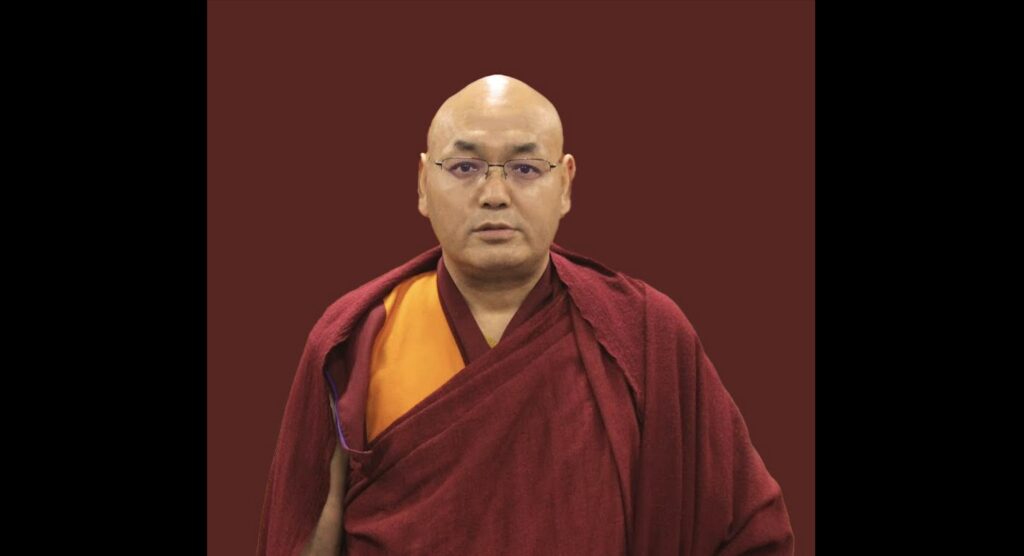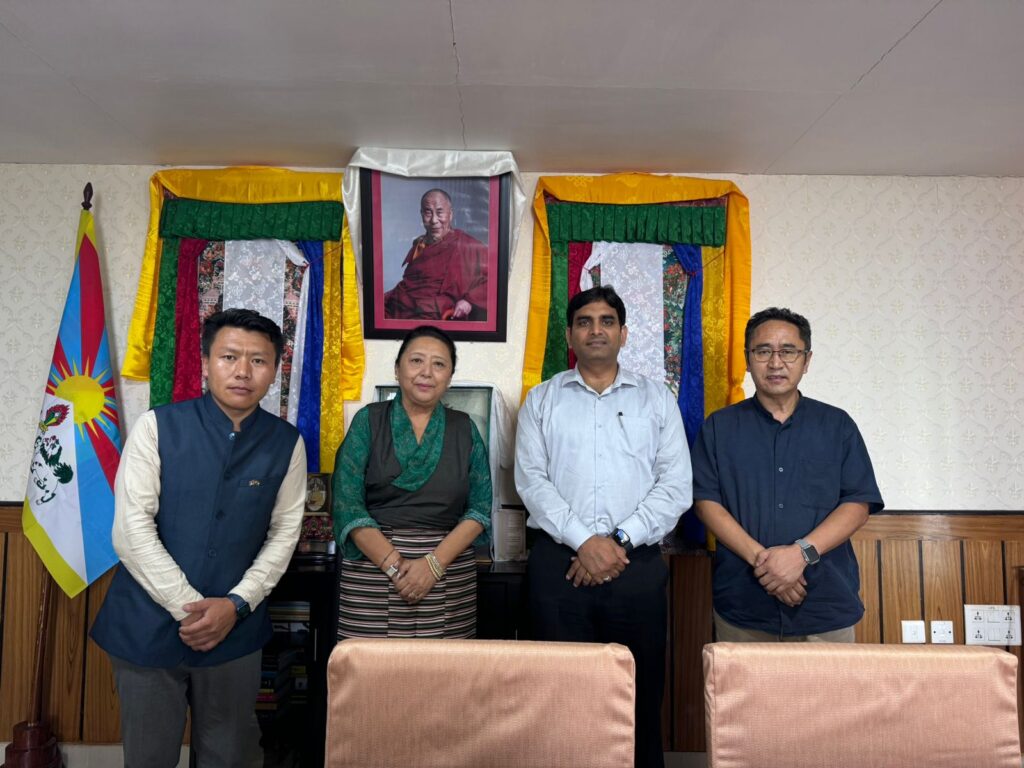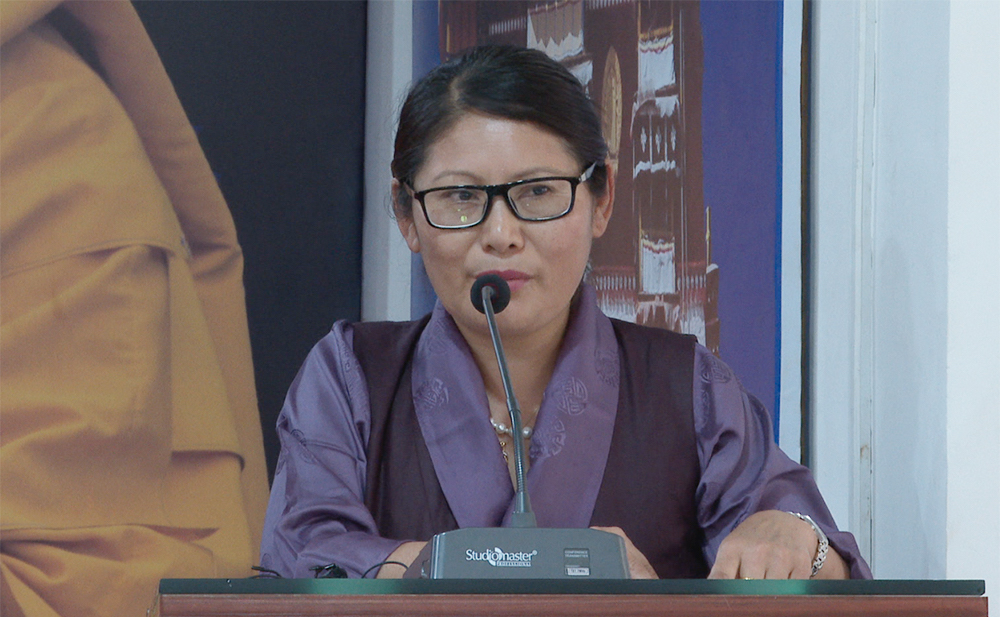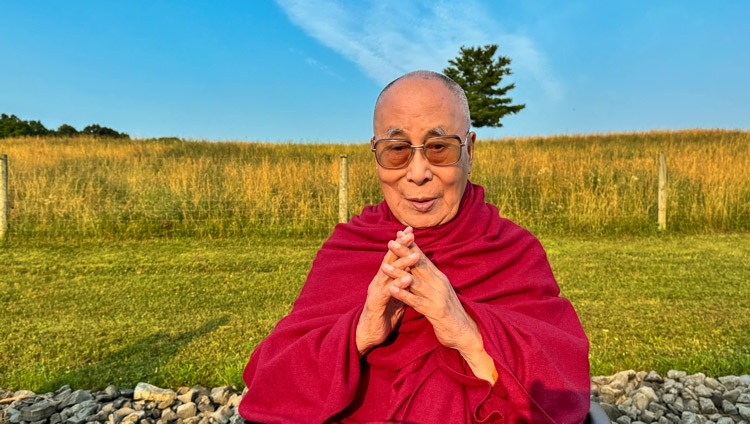Dharamshala: Sikyong Penpa Tsering of the Central Tibetan Administration took part in a webinar titled “Seventy-two Years of Chinese Colonial Rule in Tibet” organised by The Democracy Forum shortly after his arrival in the UK on 24 April. Sikyong was among the panel of experts speaking about the Tibetan people and their struggle for freedom from oppressive Chinese rule.
In his keynote address, he explored key events in Tibet’s recent history including the forgery committed by Chinese leadership at the signing of the 17-point Agreement with Tibet that led to a decade-long cultural revolution in Tibet until the end of Mao’s era in 1976. Sikyong detailed the aftermath catastrophe impacts of the cultural revolution on the Tibetans for a long time until the takeover of leadership by Deng Xiaoping who allowed a degree of leniency to prevail in Tibet as far as policies and programs were concerned provided that Tibetans don’t seek independence.
It was during Deng Xiaoping’s era, Sikyong noted, that the hope for Sino-Tibet dialogue was made possible as Tibetan facts-finding delegation and exploratory teams were allowed to visit Tibet and Beijing between 1979-1984. However, by the mid-90s and the end of Deng Xiaoping’s leadership, the situation drastically worsened. China demonstrated a lack of political will to engage and reciprocate the numerous initiatives of His Holiness’s pursuit of a dialogue with them. Only in 2002, Beijing expressed its willingness to a dialogue with the representatives of His Holiness the Dalai Lama. Since then, a nine-round of talks took place between the delegation of the Tibetan leadership and the leadership in Beijing. The Tibetan side put forward some concrete proposals that will help build trust and confidence and move the ongoing process to a new level of engagement aimed at bringing about substantive negotiations to achieve a mutually acceptable solution to the Tibetan issue, however, the leadership in Beijing refused to comply with any of the proposals set forth by the Tibetan counterparts and instead wanted His Holiness the Dalai Lama and Tibetans to legitimise Tibet as an integral part of China.
“Tibet stands as one of the least free countries in the world in the last 72 years of Chinese colonial rule in Tibet contending with South Sudan and North Korea. We are dying a slow death. Our culture is dying a slow death. All the policies and programs of the Chinese government are aimed at eradicating the Tibetan national identity and Tibet’s environment,” Sikyong remarked and lamented that the Chinese government knowingly commits such atrocity. He raised concerns about the separation of 1 million Tibetan children from their families and who are forced assimilation at colonial boarding schools. He condemned this policy had anything to do with providing education so much as to sinicise the Tibetan children in its pursuit of the One China Policy.
In an effort to counter this growing aggression of China, Sikyong implores the global community not to recognise China’s suzerainty of Tibet as China would have it. He said the right to give this legitimacy belongs only to His Holiness the Dalai Lama and the Tibetan people.
Apart from Sikyong, the key speakers at the webinar include Chris Law MP, Co-Chair of the All-Party Parliamentary Group on Tibet Dr Martin Mills, Director, Scottish Centre for Himalayan Research, University of Aberdeen Prof. Dibyesh Anand, Head of School of Social Sciences and Professor of International Relations, University of Westminster. Humphrey Hawksley, Author & former BBC Asia correspondent moderated the forum.
The Democracy Forum is a non-profit organisation founded in 2009 under the patronage of Baroness Nicholson of Winterbourne. Its principal goal is to advance democracy, peace and the rule of law to counter religious fundamentalism and intolerance in the global community. Since its inception, the forum has hosted and co-hosted seminars on a wide variety of topics relating to democracy and human rights across the world.






